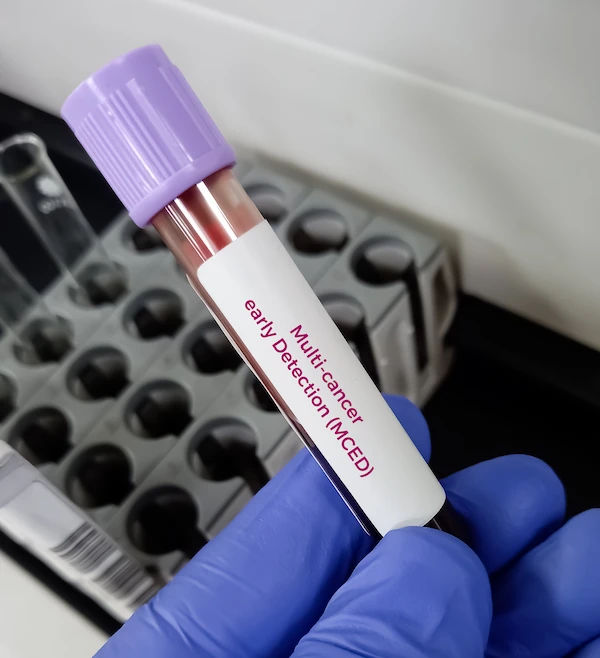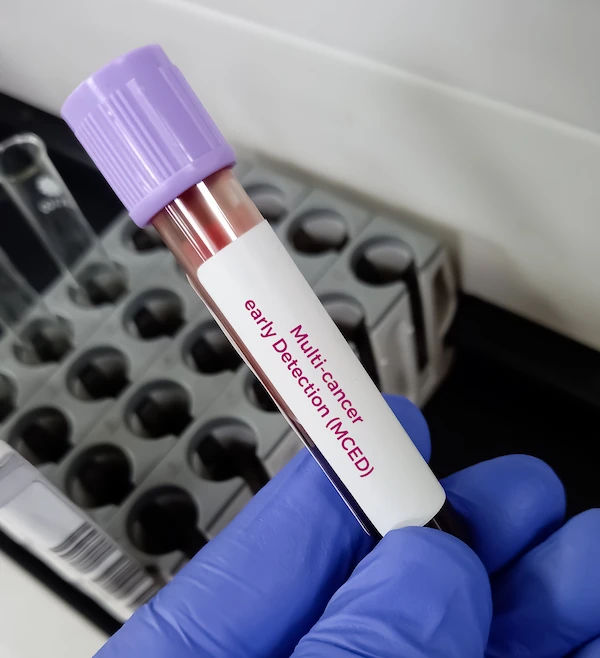Myths About Cancer Markers: What These Blood Tests Really Can and Cannot Do
Cancer marker tests are widely used but often misunderstood. Uncover the common myths and learn what these blood tests can truly reveal—and where their limitations lie in cancer detection and monitoring.

Written by Dr. Dhankecha Mayank Dineshbhai
Reviewed by Dr. Siri Nallapu MBBS
Last updated on 10th Sep, 2025

It's natural to want a quick and simple answer when you're worried about your health. When it comes to cancer, that's especially true. We all hear about "cancer marker tests" or "tumour marker tests," and it's easy to think they’re a simple blood test that can tell you if you have cancer. But the real story is a bit more complicated.
Cancer markers are substances that are often made by cancer cells, or by normal cells in response to cancer. They can be found in your blood, urine, or other body fluids.
Think of them like clues. A high level of a specific marker might point to a problem, but it doesn't give a definitive answer. A lot of things, not just cancer, can cause these markers to be high. This is the most important thing to remember.
Myth 1: One Blood Test Can Tell Me I Have Cancer
This is the most common and most dangerous myth out there. Many people think if a test for a certain marker, like PSA for prostate cancer or CA-125 for ovarian cancer, comes back high, they have cancer for sure. This is simply not true.
- The Reality: Cancer marker tests are not used to diagnose cancer on their own. They are just one piece of a much larger puzzle. Your doctor will always look at your medical history, your symptoms, do a physical exam, and likely order other tests like scans (MRI or CT) and, most importantly, a biopsy.
- Why? Because a high marker level can be a “false positive.” This means the test says something is wrong when it isn’t. For example, a high PSA level can be a sign of prostate cancer, but it's also common if you have a harmless enlarged prostate or an infection. Similarly, a high CA-125 level can be linked to ovarian cancer, but it can also be raised by conditions like endometriosis, uterine fibroids, or even during your period. Jumping to conclusions based on just one test can cause a lot of unnecessary worry and lead to more tests you don't need.
Myth 2: If My Test Is Normal, I'm Cancer-Free
This is the flip side of the first myth and can be just as misleading. A normal or low test result doesn’t mean you’re in the clear. This belief can give you a false sense of security and make you ignore symptoms you should be concerned about.
- The Reality: These tests aren't 100% accurate. Many cancers don't have a known marker, and even for those that do, not all tumours produce enough of the marker to show up on a blood test, especially in the early stages.
- So, if you get a normal test result but you're still experiencing worrying symptoms like unexplained weight loss, a new lump, constant fatigue, or changes in your bowel habits, you should always talk to your doctor. Don't let a "normal" result stop you from getting a proper check-up.
Myth 3: These Tests Are a Great Way to Screen for Cancer in Everyone
Wouldn’t it be great if we could all just get a simple blood test every year to check for any kind of cancer? It would be, but it’s not how it works right now.
- The Reality: For most cancers, screening is done with specific tests for specific groups of people. For example, women of a certain age get mammograms to screen for breast cancer, and people over a certain age get colonoscopies to screen for bowel cancer.
- The only real exception is the PSA test for prostate cancer screening. However, even this is a point of debate among doctors because it has its own limitations, including the risk of false positives that can lead to unnecessary biopsies. The choice to get a PSA test for screening should be a personal one, made after a detailed chat with your doctor about the pros and cons.
Myth 4: Once a Marker Is High, It Will Stay High Forever
The fear that a high test result means a permanent problem is understandable, but it's not accurate.
- The Reality: The level of a cancer marker can go up and down. In fact, this is one of the most useful things about these tests. A high marker level can be used to monitor your treatment. If you’ve been diagnosed with cancer and are getting treatment, a drop in your marker level is often a good sign that the treatment is working. If the level goes up, it might mean the cancer is growing or has come back.
- For example, doctors might track the level of the CA 15-3 marker in breast cancer patients. A decrease in this number after treatment would be a great sign of progress. It's not a static number; it’s a tool for tracking changes over time.
Myth 5: All Cancer Marker Tests Are the Same
If you look at a list of lab tests, you’ll see different names like CEA, AFP, CA 19-9, and CA 125. It’s a mistake to think they all do the same thing.
- The Reality: Each cancer marker is specific to certain types of cancer and is used for a specific purpose.
- Prostate-Specific Antigen (PSA): Used mainly to monitor and screen for prostate cancer.
- Cancer Antigen 125 (CA-125): Mainly used to check on treatment and look for recurrence in women with ovarian cancer.
- Carcinoembryonic Antigen (CEA): Used to monitor people with bowel cancer and some other gut-related cancers to see how well treatment is working.
Alpha-Fetoprotein (AFP): A marker for liver cancer and certain testicular cancers, used to check treatment progress. - Cancer Antigen 19-9 (CA 19-9): A marker mainly used to track patients with pancreatic cancer and other gut cancers.
The Real Power of Cancer Marker Tests
Now that we’ve cleared up the myths, let's look at the real and very important jobs these tests do. They aren’t magic wands for diagnosis, but they are an essential part of cancer care.
- Checking How Well Treatment Is Working: This is one of their biggest uses. By watching a patient's marker levels throughout treatment, doctors can see if the therapy is effective.
- Looking for Cancer's Return: After a successful treatment, doctors may use these tests to check for any signs that the cancer is coming back. A rise in a marker level can be an early warning sign, prompting more tests and a quick response.
- Helping with Prognosis: Sometimes, the level of a marker can help doctors understand how advanced the disease is and what the likely outcome might be. This helps them create the best possible treatment plan for you.
Get Your Health Assessed Here
Conclusion
Don't let a single test result make you panic or give you a false sense of security. The most important step you can take is to talk to a doctor. They will look at your individual situation, including your symptoms and health history, and recommend a plan that is right for you. They are the only ones who can properly interpret these results within the context of your overall health.




